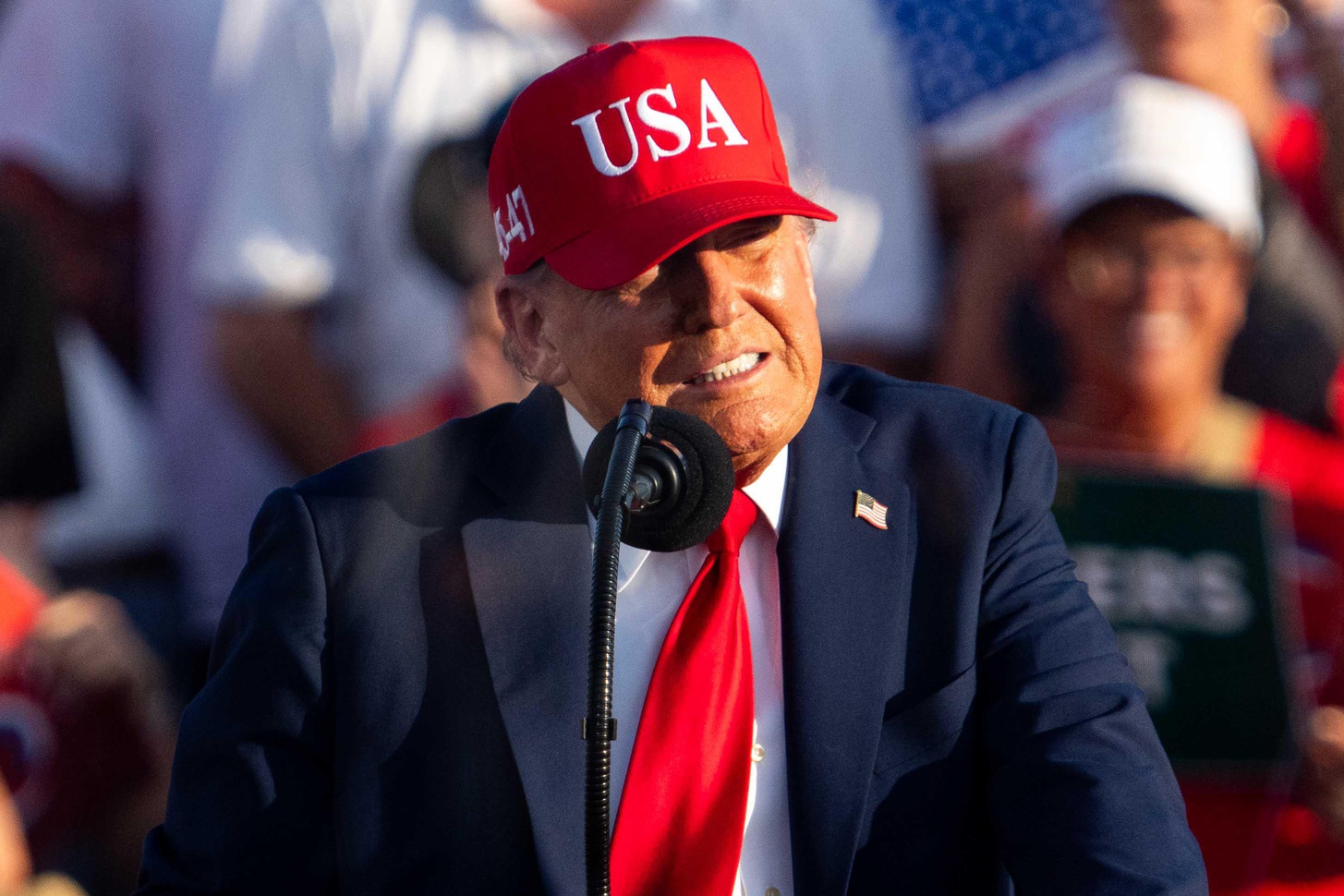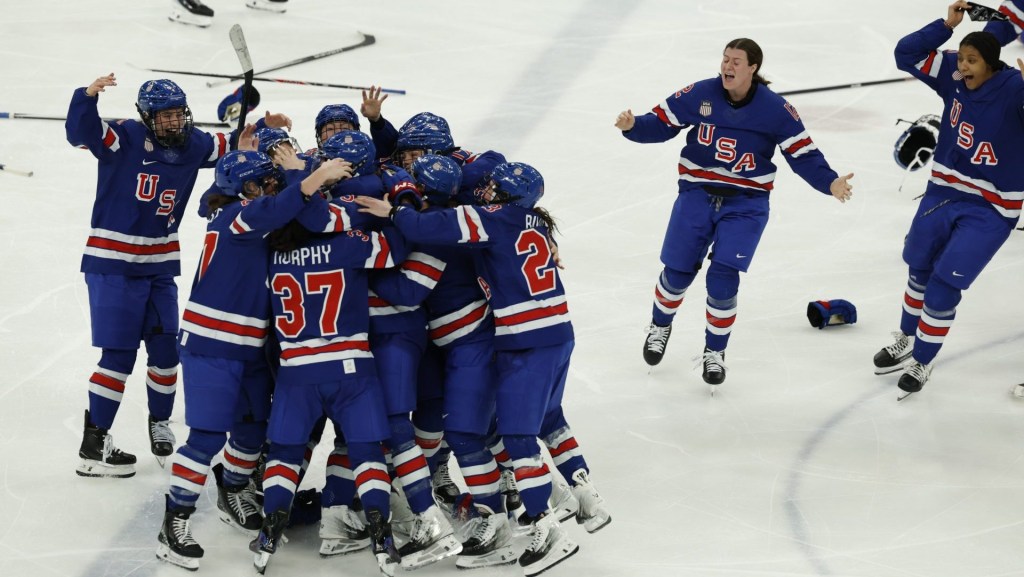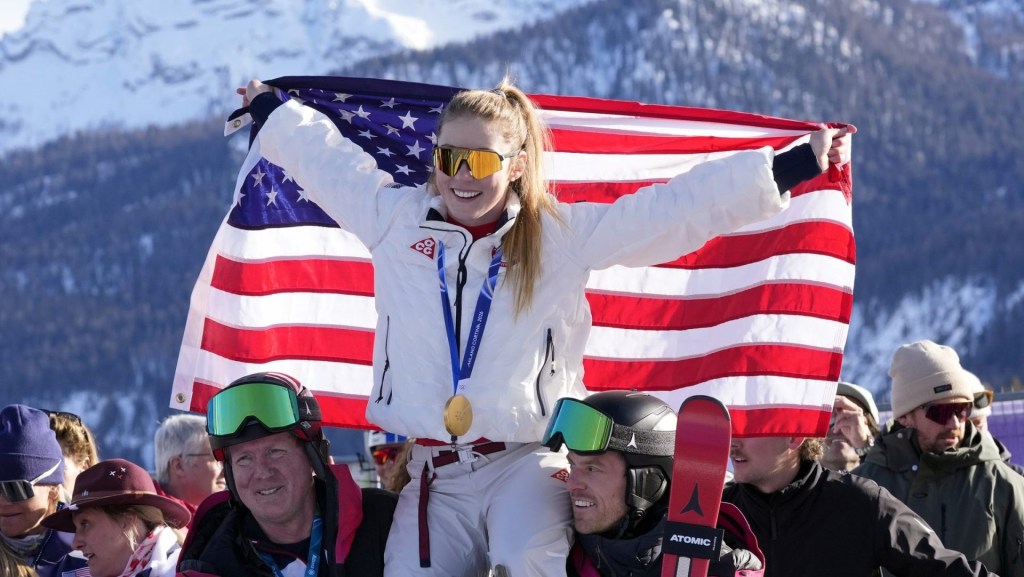On Thursday, President Donald Trump announced he signed an executive order related to governing the name, image, and likeness (NIL) landscape, as well as Olympic and women’s sports. There was no public signing of the order; the White House released a fact sheet, “President Donald J. Trump Saves College Sports,” detailing the order’s main points.
Front Office Sports reported previously that Trump was actively working on an executive order.
“President Trump recognizes the critical role of college sports in fostering leadership, education, and community pride, the need to address urgent threats to its future, including endless litigation seeking to eliminate the basic rules of college sports, escalating private-donor pay-for-play payments in football and basketball that divert resources from other sports and reduce competitive balance, and the commonsense reality that college sports are different than professional sports,” the fact sheet read.
The order prohibits “third-party, pay-for-play payments,” though it specifies that other “legitimate, fair-market-value compensation that a third party provides” is still allowed. The language bolsters initial guidance from the College Sports Commission, which said NIL collectives wouldn’t be approved under the NIL Go clearinghouse. That guidance has been challenged, and a basic agreement was reached to treat collectives like normal businesses, FOS reported earlier this week.
The order also addresses revenue-sharing, saying payments from schools to players “should be implemented in a manner that preserves or expands scholarships and collegiate athletic opportunities in women’s and non-revenue sports.” (Early in the Trump Administration, however, the Department of Education reversed guidance that said it would consider revenue-sharing payments subject to Title IX.)
Finally, it attempts to preserve Olympic sports by directing schools with athletic department budgets of a certain size to maintain or increase their Olympic sports opportunities and scholarships.
Beyond that, the order doesn’t take concrete action. It directs the Secretary of Labor and National Labor Relations Board to “clarify the status of student-athletes,” though it does not expressly say they should be classified as amateurs, rather than employees. It asks the Attorney General and FTC to “take appropriate actions to protect student-athletes’ rights and safeguard the long-term stability of college athletics from endless, debilitating antitrust and other legal challenges.”
Sources have previously suggested that an executive order likely wouldn’t have the legal authority to offer the NCAA the protections it is currently seeking through congressional action, including antitrust protections against lawsuits challenging athlete pay rules and a stipulation preventing college athletes from being classified as employees. But Trump’s order does at least attempt to satisfy some of these demands.
The executive order marks the Trump White House’s first foray into legislating college sports compensation, but they aren’t the only ones in Washington interested in this issue. Since 2019, the NCAA and power conferences have spent millions lobbying Congress to pass a law that would halt the athletes’ rights movement by providing federal standards for NIL. They’ve also sought legislation that would allow the NCAA to set its own compensation, eligibility, and transfer rules without fear of more lawsuits, and deem athletes as amateurs. Both the House and Senate have held hearings and lawmakers have introduced bills, but none have gone far enough for a vote.
Since the House v. NCAA settlement was approved in June, those efforts appear to have picked up steam. The SCORE Act, an NCAA and power-conference-endorsed bill that would codify the House settlement terms and give the NCAA the aforementioned protections, passed a subcommittee markup in the House on July 15. It could be the first bill of its kind to reach the House floor for a vote.
Trump’s executive order isn’t expected to conflict with congressional action, which is led by House Republicans (though the SCORE Act does have two Democratic co-sponsors). “The SCORE Act … will complement the President’s executive order, and we look forward to working with all of our colleagues in Congress to build a stronger and more durable college sports environment,” Rep. Brett Guthrie (R., Ky.), Rep. Tim Walberg (R., Mich.), and Congressman Jim Jordan (R., Ohio), said in a joint statement.

















